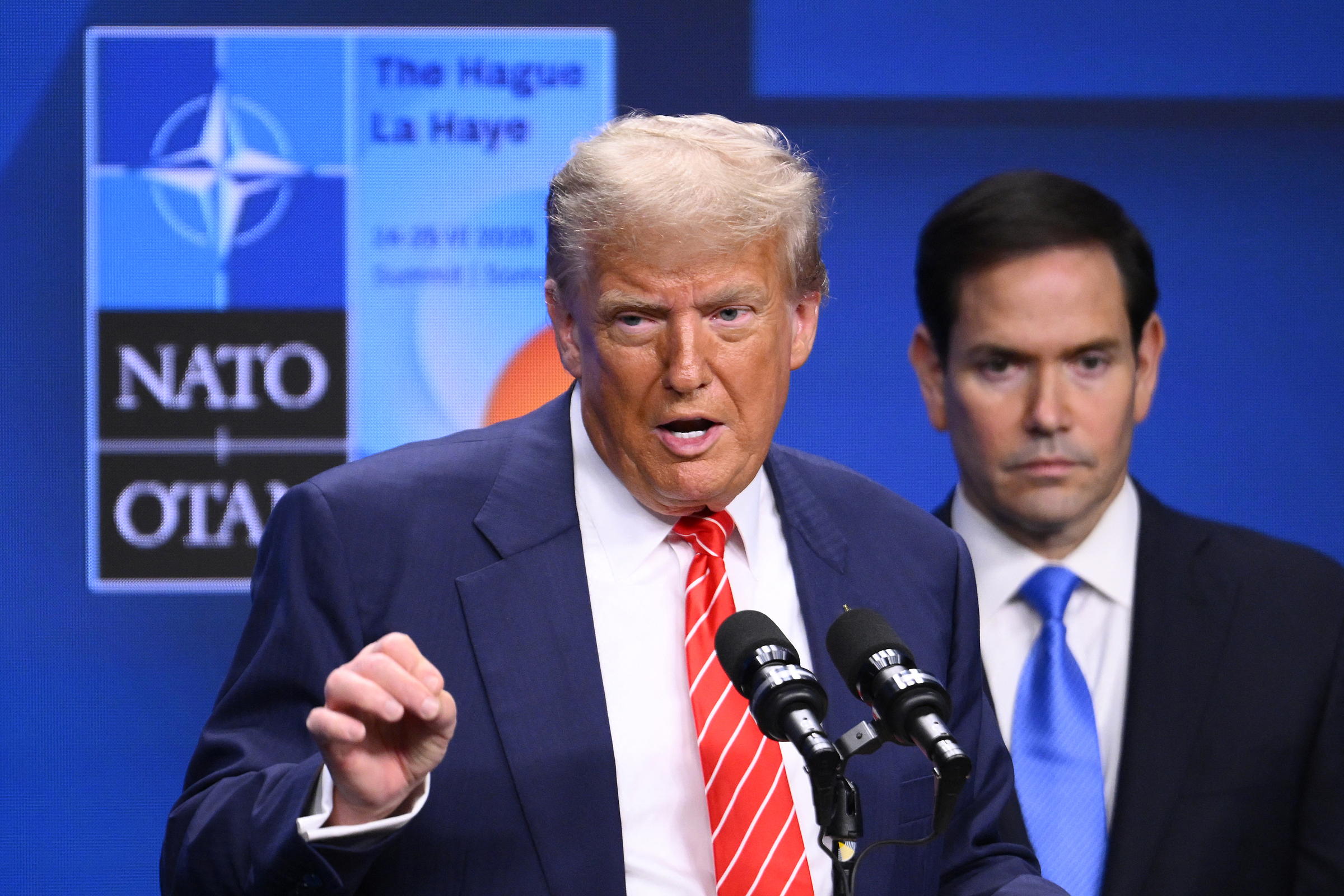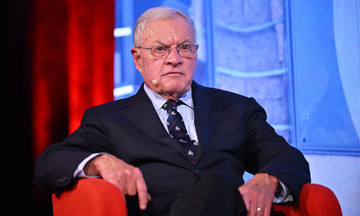"They're going to need money to get their country back in shape. We'd like to see that happen," US President Donald Trump said at a NATO summit press conference on 25/6 when asked about the possibility of easing oil sanctions on Iran.
The US administration has implemented secondary sanctions targeting any foreign individuals, companies, or banks that purchase, transport, finance, or process Iranian oil. These parties could face being barred from US transactions, having their accounts frozen, and losing access to US financial markets.
 |
US President Donald Trump attends a press conference at the NATO summit in The Hague, Netherlands on 25/6. Photo: AFP |
US President Donald Trump attends a press conference at the NATO summit in The Hague, Netherlands on 25/6. Photo: AFP
Jeremy Paner, from the law firm Hughes Hubbard & Reed, explained that if Trump decides to suspend the sanctions related to Iranian oil, it would require significant interagency coordination. The US Department of the Treasury would have to issue licenses, and the US Department of State would have to notify Congress to enact waivers.
Following US airstrikes on three key Iranian nuclear facilities on 22/6, Trump stated on 25/6 that Washington would engage in dialogue with Tehran the following week. He suggested the possibility of a new nuclear agreement but also emphasized that such an agreement might not be necessary since the US had already destroyed Iran's nuclear program.
According to Trump, Washington's demands in the upcoming talks with Tehran would remain the same as before the Israeli-Iranian conflict erupted on 13/6. These demands include a commitment from Iran not to enrich uranium and not to develop nuclear weapons. However, he also suggested these commitments might be less relevant now, as Iran no longer has the capacity to develop nuclear weapons in the near future.
Huyen Le (Reuters, AP, Newsweek)












